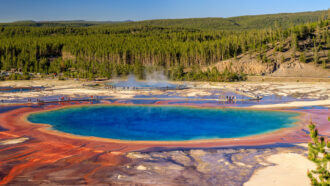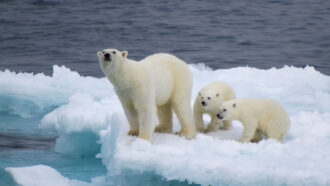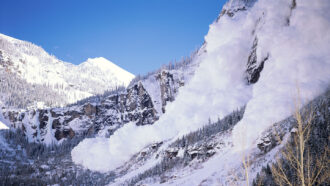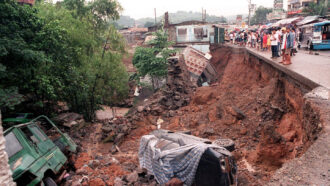Scientists Say
A weekly word defined, in a sentence and in context. Click here to find the alphabetized list.
-
 Physics
PhysicsScientists Say: Voltage
Voltage is a measure of how much electricity is available to power devices.
-
 Microbes
MicrobesScientists Say: Bacteria
Bacteria get a bad rap for making people sick, but only a tiny portion of these single-celled creatures cause disease.
-
 Chemistry
ChemistryScientists Say: Silicon
The chemical element silicon is used to make everything from bricks to cookware to electronics.
-
 Space
SpaceScientists Say: Solar wind
This is a powerful gust of charged particles that flows out from the sun through the solar system.
-
 Life
LifeScientists Say: Adaptation
This word refers to a feature of a living thing that helps it better survive in its environment — or the process of that feature evolving in a population.
-
 Earth
EarthScientists Say: Savanna
Savannas exist where there is more rainfall than in a desert, but less than in a forest.
-
 Life
LifeScientists Say: Experiment
An experiment is a set of procedures to learn about the world — and an important part of the scientific process.
-
 Earth
EarthScientists Say: Avalanche
The word avalanche usually refers to a huge snowslide down a mountain, but it can also be used to describe any large mass of material tumbling downhill.
-
 Climate
ClimateScientists Say: El Niño and La Niña
El Niño and La Niña are part of a climate cycle that results in major weather changes every few years.
-

-
 Physics
PhysicsScientists Say: Convection
Convection is a process that transfers heat through the movement of liquid or gas.
-
 Plants
PlantsScientists Say: Phloem
Phloem is tissue that delivers food, made in leaves during photosynthesis, to the rest of a plant.